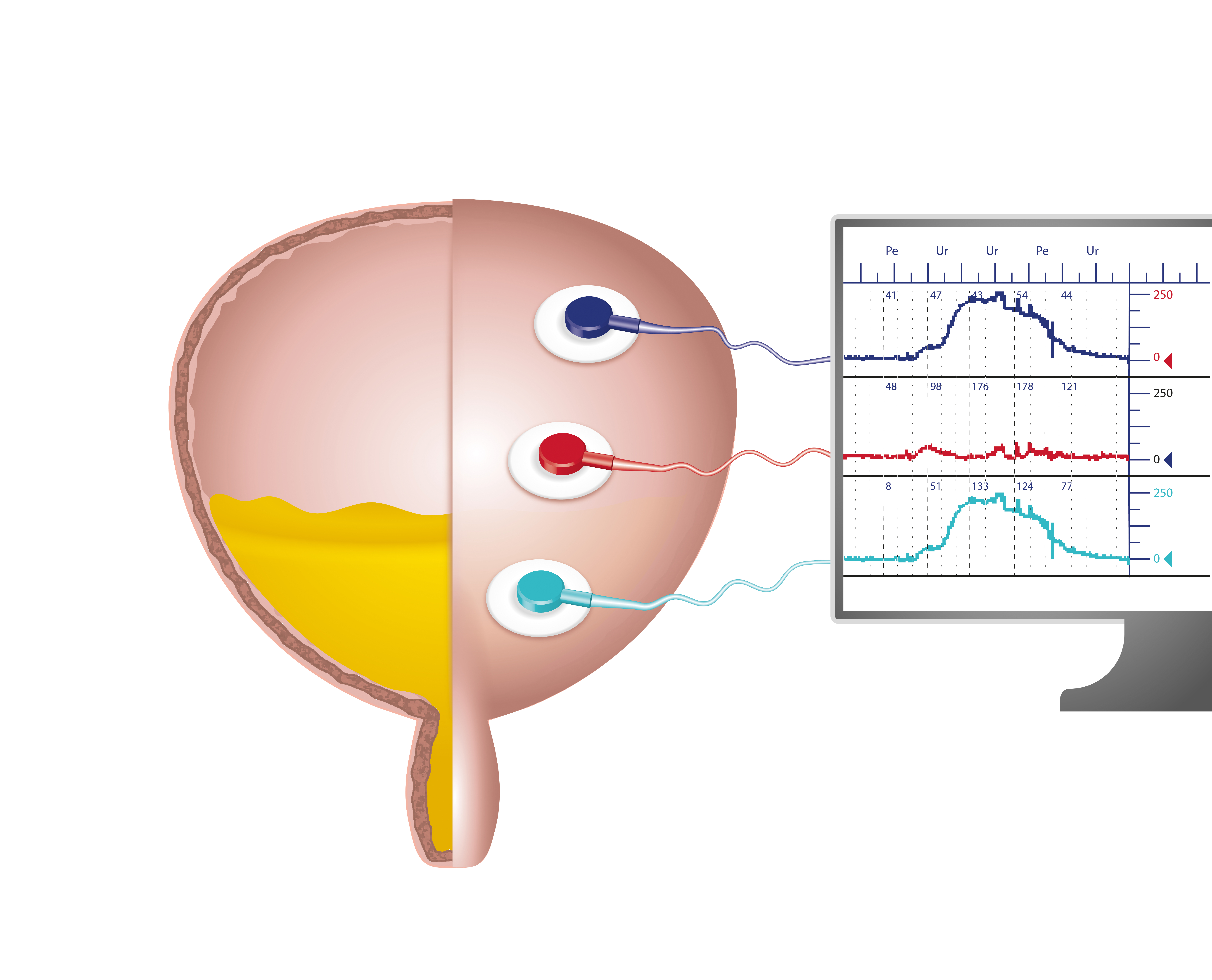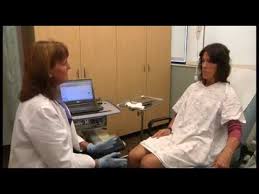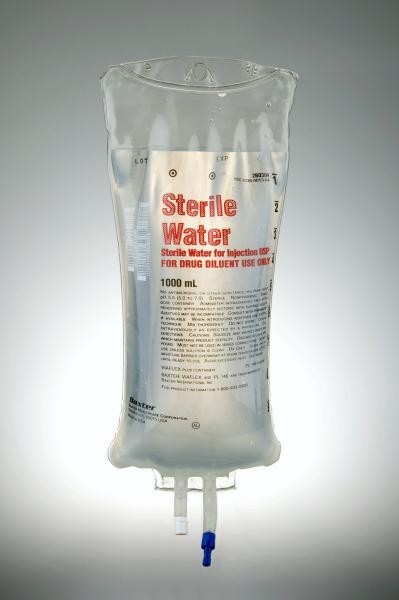Recently, a large-scale study of men referred to urologists in England for difficulty urinating has published results (Lewis Eur Urol 2019). This trial, called UPSTREAM, recruited over 800 men for two dozen locations across England. In addition to the usual history, physical and baseline evaluation for the voiding issues, some men were randomized to undergoing a urodynamics test (UDS) and the authors have recently reported some of their data.
Recent Updates on the Use of Urodynamics in Men
Topics: Urodynamics Testing, male urodynamics, Male Diagnostics
Urodynamics: Listen to the Patient or Listen to the Study?
During a urodynamics study (UDS), there are a variety of pieces of data coming in to the urologist and technician performing the study. Information will be obtained that is both subjective and objective in nature and the question is, who do you believe? Do you believe yourself and the objective data you are reviewing? Or, do you believe what the patient is telling you during the study? This blog post will explore this in detail.
Topics: Urodynamics Testing, urodynamics training, urodynamics interpretation
Medical Devices: How Should Nurse Educator Services And Traditional Field Service Work Together?
Providing an effective field service is one of the key responsibilities of medical device companies.
Traditionally, field service agents have been technical support staff with little to no background in medical sciences. Today, however, there is an increasing trend toward incorporating nursing staff, particularly nurse educators, in medical device field service.
Any industry thrives on customer satisfaction, and this applies equally to medical device companies. For medical device companies, customers are typically healthcare professionals who are fully satisfied only when they are able to use a device correctly and to its maximum efficacy, and can summon support to troubleshoot problems as soon as they crop up. Hence, the need for a reliable and readily available field service that can handle problems related to medical devices quickly.
What is expected from a traditional field service?
Field service is required after the sale of medical devices and field staff from the medical device company visit customer premises—usually a hospital or clinic—for this purpose. The general expectations from a field service are:
Topics: Medical Practice Operations, Medical Device Field Service
Additional Diagnostic Tests Commonly Used with Urodynamics (UDS)
Urodynamics (UDS) testing is usually performed in conjunction with a slew of other urologic tests and functions in concert with other diagnostics. This blog post will explore other common tests used in patients who will be having UDS testing and explains the indications and data that come from those other assessments.
All patients who have UDS will undergo a comprehensive history, physical and laboratory testing. The history will focus on the specific urologic complaints the patient has, but also bowel issues, neurologic disorders and whatever medications the patient is on as well. Surgical history, especially related to urinary tract and anti-incontinence surgery is critical as is diet information. Lab testing will include a urinalysis to search for blood or infection, urine culture if infection is suspected, and many patients will have serum lab testing to assess kidney function.
Topics: Urodynamics Testing, outsourcing diagnostics, urodynamics service provider, Uroflowmetry, Urology Practice Trends, Post-Operative Urodynamics
What is Required for a Urodynamics Tech or Nurse to be Competent?
Since urodynamics (UDS) is a relatively time consuming test, physicians who perform and interpret UDS are reliant on ancillary medical staff to perform much of the UDS study. This role is often performed by a mid-level provider, such as a nurse practitioner (NP), physician’s assistant (PA), registered nurse (RN) and even by a medical assistant or other trained technician (MA). The degree of medical knowledge needed to successfully perform a UDS test does not need to be extensive, hence providers do not need a medical or advanced degree to perform UDS; however, they do need to be proficient in setting the patient up for the test, know the key steps, know how to manage basic artifacts and when to engage the physician during a test.
Topics: Urodynamics Testing, urodynamics equipment, urodynamics training
Are Urologists Properly Trained in Urodynamics (UDS) During Training?
UDS is a critical procedure in the practice of urology and the management of voiding dysfunction in men and women. All urologists receive exposure to UDS testing during residency training. In the United States, residents are required to perform and interpret 10 UDS studies in order to graduate from residency. In addition, some residents choose to undertake fellowship training in Female Pelvic Medicine and Reconstructive Surgery (FPMRS), where substantial exposure to UDS is had. UDS testing certainly is utilized in significantly more patients and a part of care for many other patients encounter during training; however, as with many other skills, there will be a wide range of exposure during training and quality will certainly vary between programs.
Topics: urodynamics, urodynamics training, clinical operations, urodynamics service provider, Medical Practice Operations
How Nurse Educator Services Influence Medical Device Utilization Rates
There has been a recent trend on the part of both pharmaceutical and medical device companies to employ nurses and then deploy them in the field in different roles to support their products—the products being drugs and devices, respectively. Given the clinical background and medical knowledge of nurses, this has been a win-win situation for everyone, including the end users of the products, such as patients and healthcare teams and professionals. For medical device companies that have overlooked the trend, it’s something that needs to be given some serious thought since nurse educator services can have a meaningful and lasting impact on medical device utilization rates.
Topics: Brighter Health Network, urodynamics training, urodynamics staffing, ancillary services, urodynamics service provider
Impact of Filling Rates on Cystometry/Urodynamic Studies
As with many of the practical aspects of urodynamics (UDS) testing, the rate at which the bladder is filled during the cystometric portion of the exam influences the test results. Generally speaking, filling during UDS can be at rates below physiologic levels, at physiologic levels or at supra-physiologic levels. There are distinct pros and cons to filling at either physiologic rates or rates above that, while filling at a rate below the natural rate of bladder filling is both inefficient and unnatural.
Topics: Urodynamics Testing, urodynamics, urodynamics training
Urodynamics Equipment: Things to Consider and Reasons Not to Buy
If you ended up on this blog post, you are probably thinking about buying urodynamic equipment or are evaluating purchasing options. If you are, I am going to lay out an argument for not buying it. As with purchasing any medical equipment, there are many hidden pitfalls. I want to lay out some of these pitfalls and detail an alternative to buying urodynamics equipment.
Topics: urodynamics interpretation, urodynamics service provider, urodynamics profitability, Medical Practice Operations
Should Urodynamics (UDS) Require Certification for Doctors and Nurses?
As with many aspects of medical practice, a solid training foundation is critical to best practices and the safe delivery of care. When it comes to performing urodynamics (UDS), as with many other procedures, the question of what level of training is requisite to perform UDS appropriately is a reasonable one. And the natural extension of this is whether or not a specific certification process is warranted to perform UDS.
Topics: Urodynamics Testing, urodynamics, urology, UroGynecology











